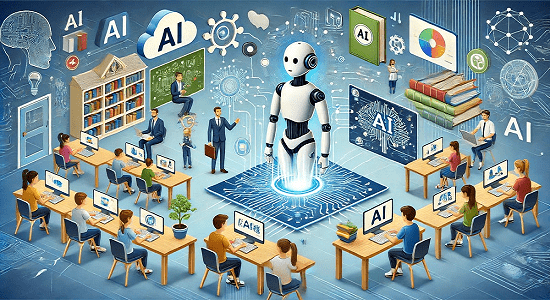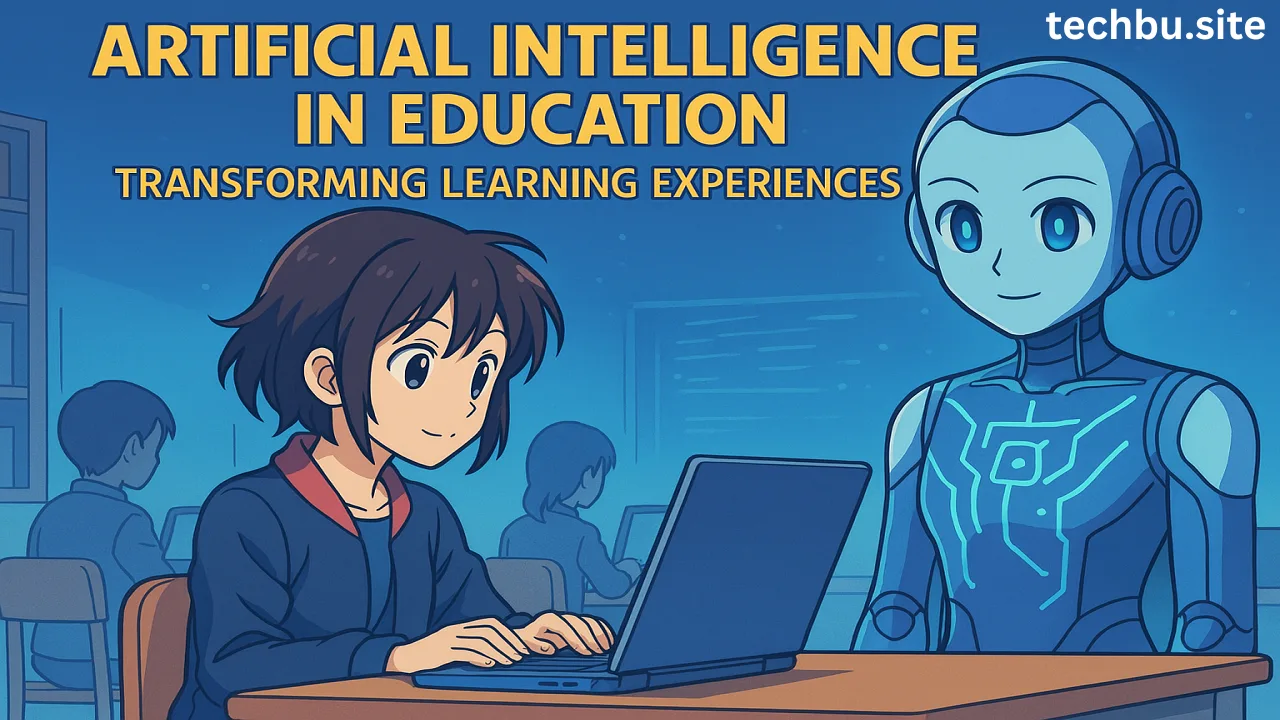Artificial Intelligence (AI) is revolutionizing various industries, including education. With the rise of AI-powered tools, learning experiences are becoming more personalized, efficient, and accessible. AI is helping students, teachers, and institutions improve education quality. In this article, we will explore how AI is transforming education and what the future holds for AI in learning. Let’s understand how Artificial Intelligence in Education: Transforming Learning Experiences.
How AI is Changing Education
Personalized Learning
AI enables personalized learning experiences tailored to individual student needs. Smart algorithms analyze a student’s strengths and weaknesses, offering customized lessons, exercises, and recommendations. This ensures that students learn at their own pace, making education more effective.
Smart Content Creation
AI assists in creating educational materials such as interactive textbooks, summaries, and multimedia content. AI-powered tools generate quizzes, study guides, and even adaptive learning content, enhancing student engagement.
Automated Grading and Feedback
Teachers spend a lot of time grading assignments and tests. AI-powered grading systems can assess multiple-choice tests, short answers, and even essays, providing instant feedback to students. This allows teachers to focus on teaching rather than administrative tasks.
Virtual Tutors and Chatbots
AI-driven virtual tutors and chatbots are available 24/7 to help students with queries. These AI assistants provide explanations, answer questions, and guide students through problem-solving processes, improving learning efficiency.
AI-Powered Analytics
AI helps institutions track student performance, attendance, and engagement. Predictive analytics identify students who may struggle and provide early interventions to support them before they fall behind.
Benefits of AI in Education
- Improved Accessibility: AI enables students with disabilities to learn through speech recognition, text-to-speech, and other assistive technologies.
- Better Engagement: AI-powered tools make learning more interactive and engaging.
- Time-Saving: Automation of administrative tasks allows teachers to focus on instruction.
- Cost-Effective: AI reduces the need for physical resources and optimizes learning experiences.
- Lifelong Learning: AI helps individuals upskill with online courses and adaptive learning platforms.

Challenges and Concerns of AI in Education
- Data Privacy: AI relies on student data, raising concerns about privacy and security.
- High Implementation Cost: Setting up AI-driven systems can be expensive.
- Lack of Human Interaction: Overreliance on AI may reduce personal interactions between teachers and students.
- Bias in AI Algorithms: AI tools may unintentionally reflect biases present in the data they are trained on.
Future of AI in Education
The future of AI in education looks promising. Here are some key trends to watch:
- AI-Powered Classrooms: Intelligent classrooms will use AI-driven tools to enhance teaching and learning experiences.
- Best Tech 2025: Future innovations will introduce more advanced AI applications, making education even smarter.
- Lifelong Learning AI Assistants: AI will support learners of all ages, providing continuous learning opportunities.
- Global AI Education Systems: AI will help bridge educational gaps worldwide, offering quality education to remote and underprivileged regions.
Conclusion
AI is transforming the education sector by making learning more personalized, accessible, and efficient. While there are challenges, the benefits outweigh the risks. As technology advances, AI will continue to shape the future of education, making knowledge more available to everyone.
FAQs
How does AI personalize learning?
AI analyzes a student’s learning habits, strengths, and weaknesses to provide customized study materials and exercises, allowing them to learn at their own pace.
What are the best AI technologies in education for 2025?
Some of the best tech in 2025 includes AI-powered virtual tutors, automated grading systems, smart content creation tools, and AI-driven predictive analytics.
Can AI replace teachers?
AI can assist teachers but cannot replace them. Human interaction, mentorship, and emotional intelligence are essential aspects of education that AI cannot fully replicate.
Is AI in education expensive to implement?
While AI solutions can be costly initially, they can lead to long-term savings by automating tasks and improving learning efficiency.
What is the future of AI in education?
The future includes AI-powered classrooms, global access to quality education, and continuous learning through AI-driven personal assistants.

